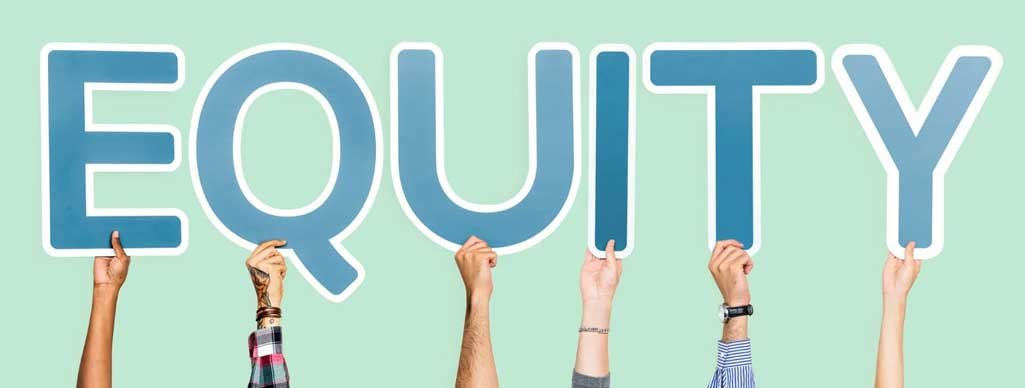
Raghav Joshi
raghav.joshi@eil.co.in

Law as the balancing factor between human wants and social welfare emerges as instrument of social change. Law and society, both are organic concepts. Social advancement leads to growth of law and the converse is also true. The concept of law as social engineering was expounded by a famous American scholar of law in the early 20th century which provides for striving a balance between competing interests in society. Given the march of law and society, both international and domestic, in the direction of expanding human rights, jurisprudence and our Fundamental Duty as a citizen of our country, necessarily means that we become inclined towards acceptance of requirements of our society, be it even a small segment of society.
The last two decades have witnessed tremendous progress in establishing civil rights for the LGBTQ+ community. To quote an example, the Federal Government in Australia enacted Same-sex Relationships (Equal Treatment in Commonwealth Laws – General Law Reform) Act, 2008 to provide equal entitlements for same-sex couples in matters of, inter alia, social security, employment, taxation. In India, the Hon’ble Supreme Court on 6th September 2018, ruled in Navtej Singh Johar Vs Union of India (AIR 2018 SC 4321) that Section 377 of Indian Penal Code was unconstitutional “in so far it criminalises consensual sexual conduct between adults if the same sex.”
Despite major changes in laws and norms surrounding the issue of same-sex marriage and the rights of LGBTQ+ people around the world, public opinion on the acceptance of homosexuality in society remains sharply divided by country, region and economic development. India has always been a scion of diversity and more so unity in diversity. Diversity implies and embodies inclusion, which is not merely limited to homes, but encompasses all walks of life, including workplace.
To thrive as an intelligent enterprise, an organization needs an inclusive culture that empowers people to run at their best, enables pooling of more intellects and the many minds in the organization to create a greater sense of community, and consequent progress. The statement subsumes understanding, acceptance, compassion and inclusion of LGBTQ+ in workforce of an organization. People of LGBTQ+ community who work in an organization suffer from various actions on part of employers and colleagues which includes lack of awareness, sensitivity, suspicion, sexual harassment, intrusive questions about personal life including children, marriage, negative aspirations on mental health, etc. It is beyond doubt that all such actions by employers/ colleagues and inaction on part of management leads to tremendous suffering by an individual employee, whose insecurities increase, efficiency decreases and he or she may even quit. Therefore, it is very important for the management and the human resource department to come up with and implement policies which encourage, promote and keep alive the principles of acceptance, inclusion and diversity in their organizations.
Brief insights into the various corporate giants who have made progress in this unchartered territory of acceptance, compassion and inclusion in workplace:
1. Mahindra Logistics Limited: Mahindra Logistics Limited (MLL) unveiled its LGBTQIA+ policy, along with a robust plan to hire people from the community. MLL’s diversity and inclusion policy extends employee benefits to the queer employees and same-sex partners, which includes but is not limited to adoption leave for single LGBT parents, ‘compassionate leave’ (in case of death of a family member), counselling services for LGBTQIA employees and their immediate family members, including their partners. In addition, MLL has pledged equal opportunity and non-discrimination for queer employees in any process of hiring, relocation, training, transfer, career development, promotions, etc.
2. Godrej: In Godrej employees are allowed to select gender when they join the company. Terminology such as ‘spouse’ has been changed to ‘partner’. LGBTQ individuals are given a three-month paid break for primary care-giving if they choose to adopt. Health insurance coverage includes same sex partners. Godrej launched Project Rainbow, a focused hiring platform for LGBTQ candidates who want to apply for internships or full-time employment positions at the company. Medical insurance coverage at Godrej cover same-sex partners as it would other family members of the employee.
3. Infosys: An official employee resource group called “Infosys Gays Lesbians and You” (IGLU) was created to bring together their LGBT employees. The focus of this group is to encourage open discussions on policy changes that are needed and the support that can help LGBT employees perform better in the workplace. Infosys also works actively in hosting workshops and sessions to raise awareness and foster a culture of respect.
4. Tech Mahindra: In 2019 added a few initiatives to its Diversity & Inclusion (D&I) policy aimed at supporting employees from the LGBTQ+ community which included work from home during first year of parenthood, 12 week of adoption leave for same-sex parents.
5. IBM India: The company set up a employee resource group which allows employees who belong to queer community to discuss with senior employees various issues ranging from alternate sexuality, queer pride events to career advancement. Periodic programs are conducted to build awareness amongst employees about LGBTQ+ community so that employees accept those amongst themselves who do not conform to hetero-normal behaviour.
Any discussion on rights if LGBTQ+ community is incomplete without shedding light on Article 7 of the Universal Declaration of Human Rights (UDHR) which provides “all are equal before the law and entitled to equal protection without discrimination”. Article 23(1) of the UDHR further contemplates protection against unemployment, by recognising the rights to work, free choice of employment, and just and favourable conditions of work, along with the protection against unemployment.
The path to inclusivity begins with companies changing their policies or creating new ones in order to provide a safe environment for LGBTQ employees and to extend them the same benefits as all other employees.
These are a few guidelines for the HR personnel to develop upon the principles of diversity and inclusion practitioners as they focus their efforts towards LGBTQ+ community inclusion. However, to sum up the efforts of the above organizations, it can be concluded that period awareness programs, regular interaction with senior employees, provision of official LGBTQ+ community employee groups, adoption/ parenthood provisions go a long way in making workplace a safe, congenial, and harassment free zone. This will not only support a community in our society which has so far been suffering, but will also give an organization the opportunity to harness human resources which have remain untapped so far, leading to growth of not only the organization, but also the community and the nation as a whole. Human resource is the backbone of an organization, especially of an organization predominantly engaged in consultancy services. Policy changes do create a positive impact, but the real change comes with positive change in the attitudes of employees, which can be done by group activities, awareness programs, etc. The role of the HR Department is crucial in implementing these policies of inclusion and diversity and ensuring that these policies are not rendered a mere piece of document or lip service in due course.
Bibliography
https://www.shrm.org/resourcesandtools/hr-topics/global-hr/pages/india-inclusion-lgbtq-employees.aspx
https://www.mahindra.com/news-room/knowledge-centre/impact-stories/the-logistics-of-diversity
https://www.shrm.org/shrm-india/pages/lgbt-inclusion-at-the-workplace.aspx
https://indiaculturelab.org/assets/Uploads/Godrej-India-Culture-Lab-Trans-Inclusion-Manifesto-Paper3.pdf
https://www.humanrightspulse.com/mastercontentblog/lgbtq-employment-protections-in-india
https://www.ibm.com/impact/be-equal/communities/lgbt/
https://www.infosys.com/sustainability/resources/documents/human-rights-statement.pdf
Posted in Diversity & Inclusion | No Comments »
Recent Articles
- Navigating the shifting tides of Diversity & Inclusion: An odyssey through Tech’s Evolution
- Unlocking Competitive Edge: Harnessing D&I Networks for Sustainable Success
- The Spark Of Inclusion (Illustrated Story on Diversity and Inclusion)
- Work Force Dynamics
- ONGC_MOSAIC
- Compassion and Compassionate Leaders at Workplace
- Diversity & Inclusion in Workplace
- Gender Inclusive leaders – Catalysts for gender-balanced workplaces
- Diversity & Inclusion
- The rest 5 million: A cry for the third gender inclusion in the Indian Workforce
- Embracing Differences, Enhancing lives
- Role of HR in ensuring a vibrant workplace: leading with acceptance, compassion and inclusion with focus on LGBTQ+ employees
- Equality to Equity
- Holistic Inclusivity: The Third Gender
- Inclusion is a Way for Sustainable Business
- Diversity & Inclusion: An Enduring Legacy in India’s Journey
